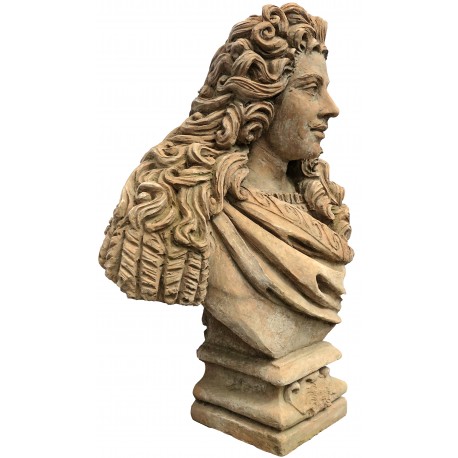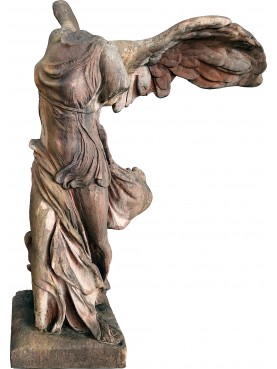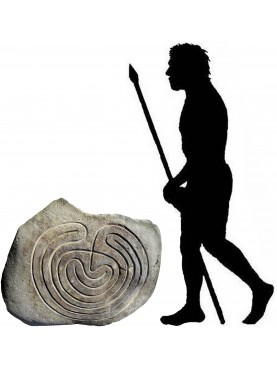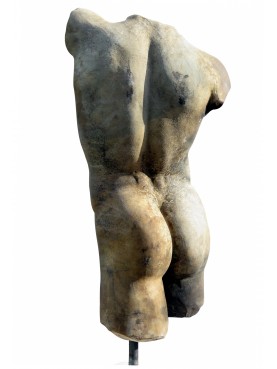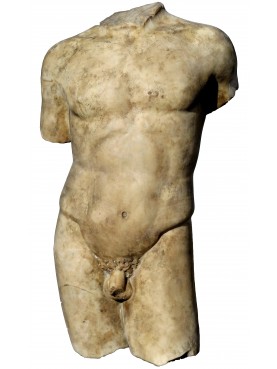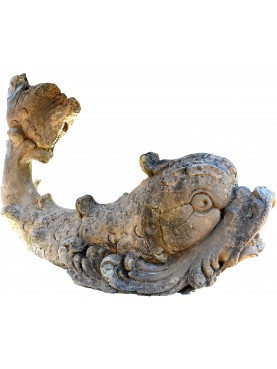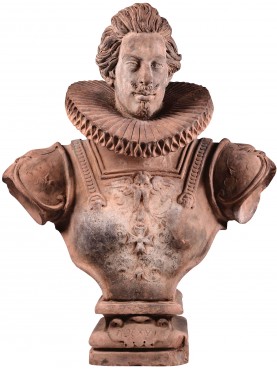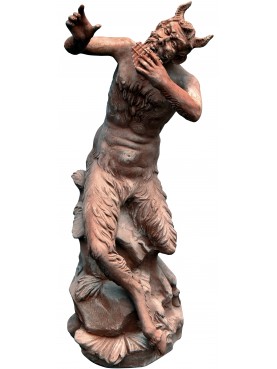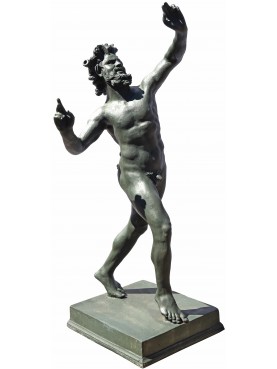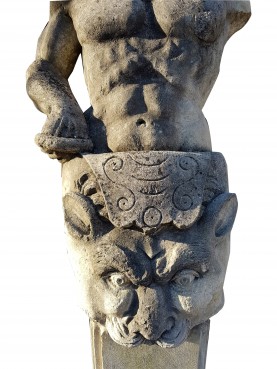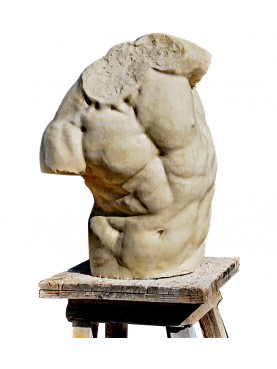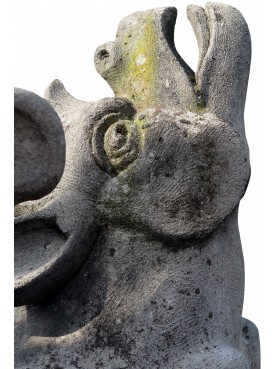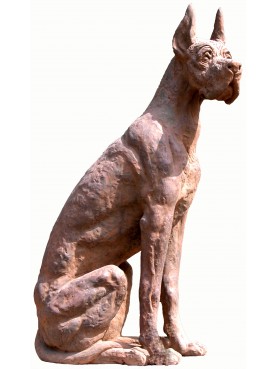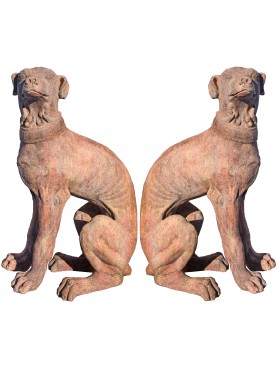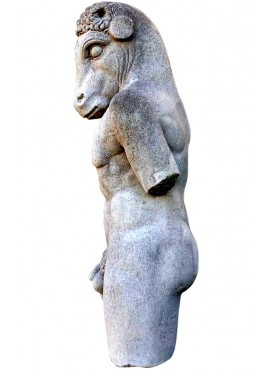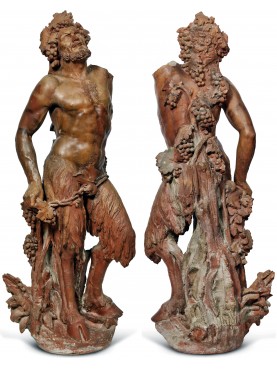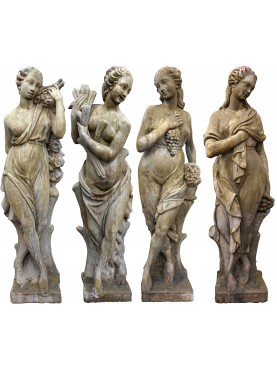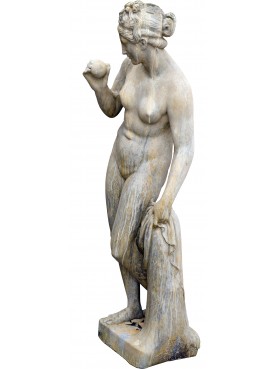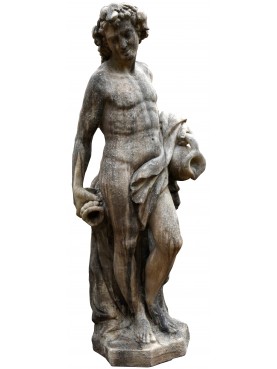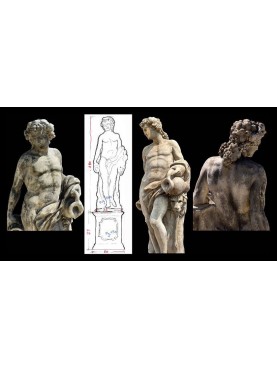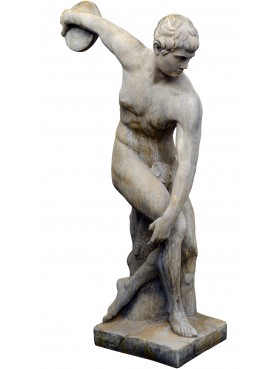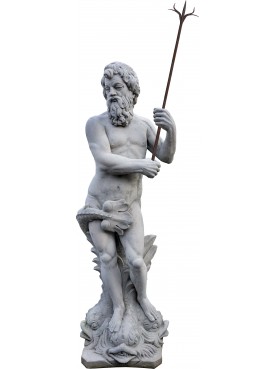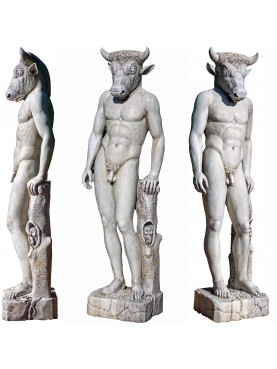Bust of Louis XIV of France, Sun King (le Roi Soleil) - terracotta bust
Bust of Louis XIV of France, Sun King (le Roi Soleil) - terracotta bust
12018
Original
Louis XIV (5 September 1638 – 1 September 1715), known as Louis the Great (Louis le Grand) or the Sun King (le Roi Soleil).
Ancient terracotta bust from Rome.
1 Available
Warning: Last item in stock!
Data sheet
| Height | 34.25 in | 87 cm |
| Width | 26.77 in | 68 cm |
| Depth | 15.75 in | 40 cm |
| Weight | 88.18 lbs | 40 Kg |
| Artist / Creator / Architect | Gian Lorenzo Bernini 1665 | |
| Square base | 9.45 in X 9.45 in | 24 X 24 cm |
| Where the original is kept | Versailles Museum | |
| Manufacturing | Ancient from Rome | |
| Material | Terracotta |
More info
Louis XIV (5 September 1638 – 1 September 1715), known as Louis the Great (Louis le Grand) or the Sun King (le Roi Soleil), was a monarch of the House of Bourbon who ruled as King of France and Navarre from 1643 until his death in 1715. His reign of 72 years and 110 days is the longest of any monarch of a major[clarification needed] country in European history. In the age of absolutism in Europe, Louis XIV's France was a leader in the growing centralization of power.
Louis began his personal rule of France in 1661, after the death of his chief minister, the Italian Cardinal Mazarin. An adherent of the concept of the divine right of kings, which advocates the divine origin of monarchical rule, Louis continued his predecessors' work of creating a centralized state governed from the capital. He sought to eliminate the remnants of feudalism persisting in parts of France and, by compelling many members of the nobility to inhabit his lavish Palace of Versailles (formerly a hunting lodge belonging to Louis' father), succeeded in pacifying the aristocracy, many members of which had participated in the Fronde rebellion during Louis' minority. By these means he became one of the most powerful French monarchs and consolidated a system of absolute monarchical rule in France that endured until the French Revolution.
Louis encouraged and benefited from the work of prominent political, military, and cultural figures such as Mazarin, Colbert, Louvois, the Grand Condé, Turenne, and Vauban, as well as Molière, Racine, Boileau, La Fontaine, Lully, Marais, Le Brun, Rigaud, Bossuet, Le Vau, Mansart, Charles and Claude Perrault, and Le Nôtre. Under his rule, the Edict of Nantes, which granted rights to Huguenots, was abolished. The revocation effectively forced Huguenots to emigrate or convert in a wave of dragonnades, which managed to virtually destroy the French Protestant minority.
During Louis' reign, France was the leading European power, and it fought three major wars: the Franco-Dutch War, the War of the League of Augsburg, and the War of the Spanish Succession. There were also two lesser conflicts: the War of Devolution and the War of the Reunions. Warfare defined Louis XIV's foreign policies, and his personality shaped his approach. Impelled "by a mix of commerce, revenge, and pique," Louis sensed that warfare was the ideal way to enhance his glory. In peacetime he concentrated on preparing for the next war. He taught his diplomats their job was to create tactical and strategic advantages for the French military.

